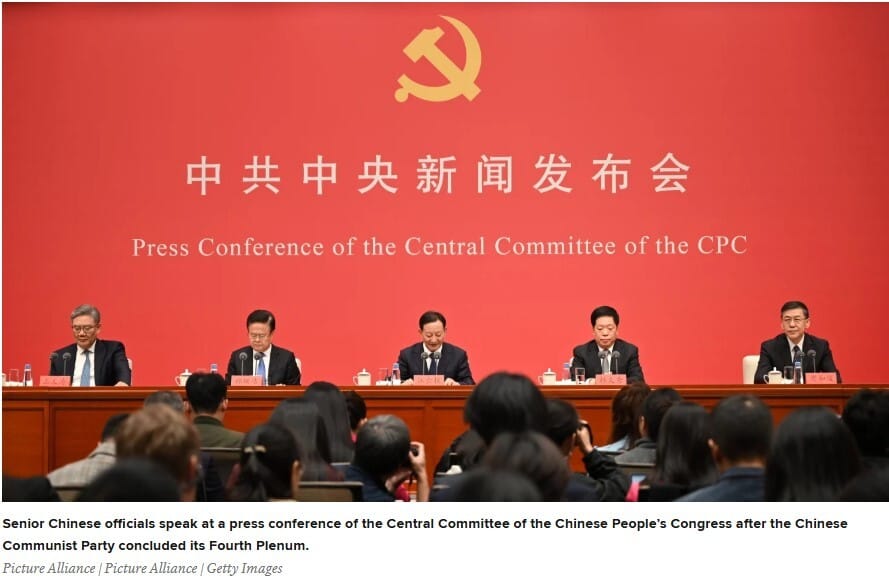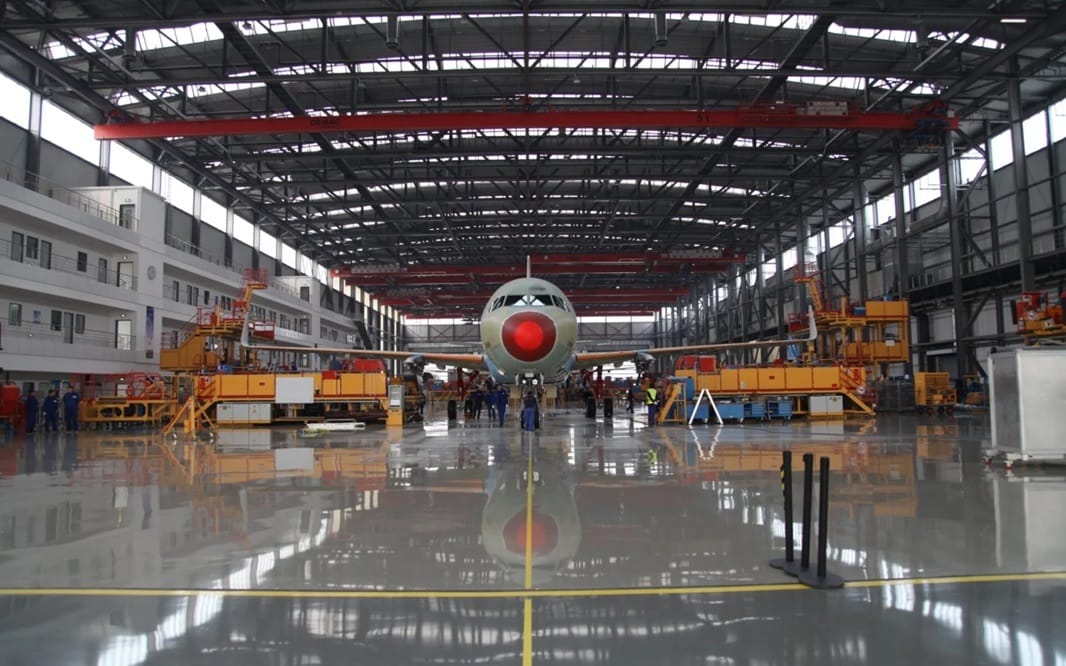- China Insights Weekly | AI, Innovation, Business & Tech in China
- Posts
- China’s 15th 5-Year Plan 🔧 Airbus Tianjin Plant ✈️ All-Electric Cargo Ship ⚓️
China’s 15th 5-Year Plan 🔧 Airbus Tianjin Plant ✈️ All-Electric Cargo Ship ⚓️
China Insights Weekly for October 27. Unpacking China’s economic and technological advances.

Welcome back to China Insights Weekly. Here are some of the key highlights for this week’s edition:
China’s Innovent signs $11.4B cancer drug deal with Japan’s Takeda, marking record biotech partnership
China unveils “UBIOS” to replace UEFI, advancing self-reliant computing standards beyond Western tech
Crude oil stockpiling nears 1M barrels per day, fueling global price uncertainty
Sunway supercomputer hits 98% efficiency in neural-network quantum chemistry, bridging AI and quantum science
🚀 Headlines
China’s 15th 5-year plan focuses on tech self-reliance, AI, and green innovation, Industrial profits surge 21.6% in September (link, link)
China’s 15th Five-Year Plan (2026–2030), unveiled at the Communist Party’s fourth plenary session in October 2025, focuses on technological self-reliance, artificial intelligence, and green innovation. It prioritizes sectors such as AI, biotechnology, renewable energy, aerospace, and new materials, aiming to transform China into a global innovation hub. The plan calls for building a modern industrial system led by advanced manufacturing, while boosting domestic consumption and improving living standards. It also links technological progress with national security and highlights rapid development in areas including quantum technology, bio-manufacturing, hydrogen and nuclear fusion energy, brain–computer interfaces, and 6G mobile communications.
Industrial profits in China rose 21.6 percent in September year-on-year, the highest monthly growth since November 2023. This continued the rebound that began in August, when profits rose 20.4 percent. For January to September, profits at major industrial firms increased by 3.2 percent, up from 0.9 percent in the first eight months. The recovery has been driven by policies aimed at reducing price wars in industrial sectors. High-tech manufacturing led the gains, with earnings up 26.8 percent in the nine-month period. Industrial output also rose 6.5 percent in September, up from 5.2 percent in August, showing continued resilience in the sector.

The Simplest Way to Create and Launch AI Agents and Apps
You know that AI can help you automate your work, but you just don't know how to get started.
With Lindy, you can build AI agents and apps in minutes simply by describing what you want in plain English.
→ "Create a booking platform for my business."
→ "Automate my sales outreach."
→ "Create a weekly summary about each employee's performance and send it as an email."
From inbound lead qualification to AI-powered customer support and full-blown apps, Lindy has hundreds of agents that are ready to work for you 24/7/365.
Stop doing repetitive tasks manually. Let Lindy automate workflows, save time, and grow your business
Japanese pharmaceutical giant Takeda has entered a licensing agreement with China's Innovent Biologics for up to three cancer drugs, in a deal valued at over USD 11.4 billion. Innovent will receive a USD 1.2 billion upfront payment, which includes a USD 100 million strategic equity investment from Takeda at a 20% premium, and is eligible for up to USD 10.2 billion in potential milestone payments. The agreement covers two late-stage therapies: IBI363, a PD-1/IL-2 dual-targeting antibody, and IBI343, a Claudin 18.2-targeting Antibody-Drug Conjugate (ADC). It also includes an option for a third, earlier-stage bispecific ADC, IBI3001. Takeda gains rights to develop and commercialize these drugs outside of Greater China. For the lead asset, IBI363, the companies will co-develop and co-commercialize in the United States, sharing costs and profits.
Airbus has opened its second A320 Family Final Assembly Line (FAL) in Tianjin, China. This follows an agreement signed in April 2023 between Airbus CEO Guillaume Faury and Chinese partners. The facility is expected to reach full operation in early 2026 and will help Airbus achieve its goal of assembling 75 A320 Family aircraft per month by 2027. The new line, featuring the latest technologies and sustainable practices, complements Airbus’s global network of ten FALs. Since its inauguration in 2008, the first Tianjin FAL has delivered over 780 A320 Family aircraft. This expansion marks the 40th anniversary of Airbus’s cooperation with China’s civil aviation sector, highlighting the company’s commitment to the growing Chinese market.



Reply